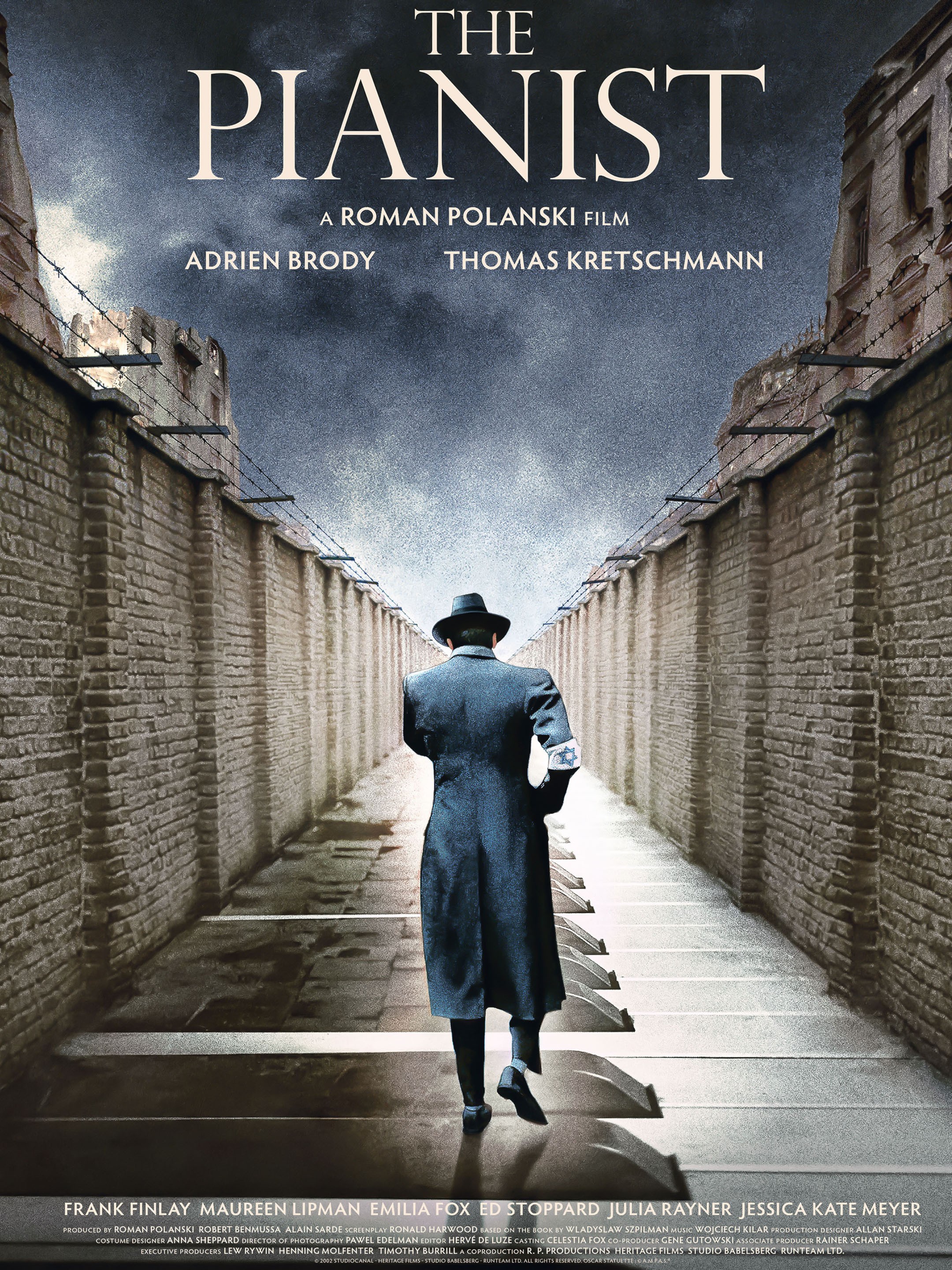The Pianist (2002)

“The Pianist” (2002) is a highly acclaimed biographical war film directed by Roman Polanski, based on the autobiography of the Polish-Jewish pianist and composer Władysław Szpilman. The film stars Adrien Brody as Szpilman and is renowned for its powerful portrayal of survival and artistic resilience during World War II.
The narrative follows Władysław Szpilman’s harrowing experiences during the German occupation of Warsaw. Szpilman, a talented pianist, witnesses the horrors of the Holocaust while struggling to stay alive in a city devastated by war and the brutal Nazi regime. The film depicts his journey from the early days of the war, through the Warsaw Ghetto, and into hiding, all while showcasing his unwavering love for music.

Adrien Brody delivers a remarkable performance as Szpilman, capturing both the physical and emotional toll of the character’s experiences. Brody’s portrayal is marked by its subtlety and depth, providing a nuanced look at Szpilman’s suffering and determination. The film’s portrayal of Szpilman’s musical talent and his passion for the piano serves as a poignant counterpoint to the brutal realities he faces.
The film also features a strong supporting cast, including Thomas Kretschmann as Captain Wilm Hosenfeld, a German officer who shows compassion towards Szpilman and plays a pivotal role in his survival. Kretschmann’s performance adds complexity to the depiction of the German occupation, illustrating that humanity and cruelty can coexist in the most unexpected places.

“The Pianist” is notable for its realistic and unflinching depiction of wartime suffering. The film’s cinematography, by Janusz Kamiński, captures the devastation of Warsaw and the stark contrasts between moments of human beauty and the horrors of war. The use of shadows and stark lighting enhances the film’s emotional impact and adds to the somber tone.
Roman Polanski’s direction is both meticulous and sensitive, reflecting his own experiences as a Holocaust survivor. The film is celebrated for its authenticity and attention to detail, from its historical accuracy to its portrayal of the psychological and emotional effects of war on individuals.

The film’s score, which features both original compositions and classical pieces, plays a crucial role in conveying Szpilman’s inner life and the emotional weight of his experiences. The music serves as a powerful symbol of hope and resilience amidst the surrounding darkness.

“The Pianist” received widespread critical acclaim and won several awards, including three Academy Awards: Best Director for Polanski, Best Actor for Brody, and Best Adapted Screenplay. The film was praised for its compelling storytelling, strong performances, and its respectful and impactful portrayal of a historical tragedy.

In conclusion, The Pianist is a profoundly moving and artistically accomplished film that offers a deep and personal look at the experiences of one man during one of history’s darkest periods. Its combination of powerful performances, striking visuals, and emotional depth makes it a significant work in the genre of Holocaust cinema and a testament to the enduring power of art and humanity.











